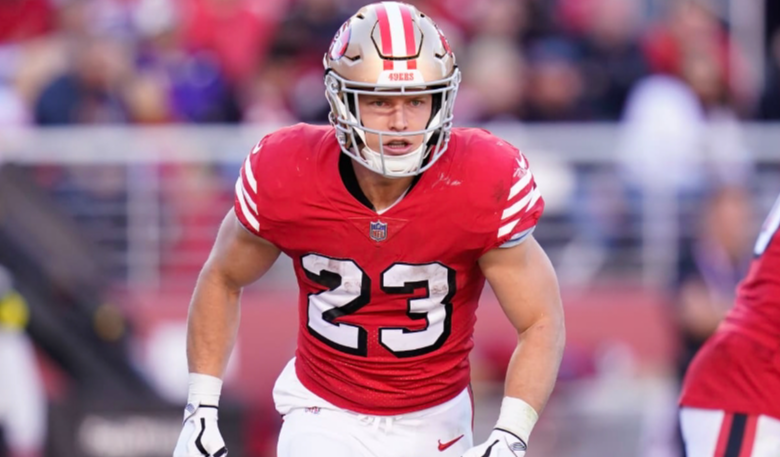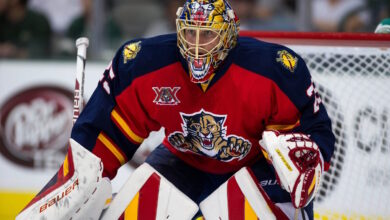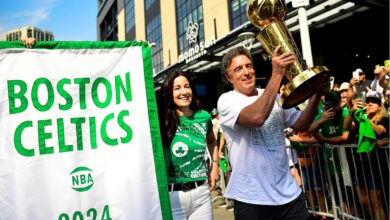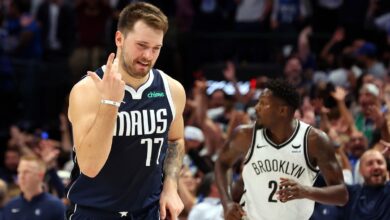The San Francisco 49ers: A History of Glory and Innovation

The San Francisco 49ers are one of the most successful and influential teams in the National Football League (NFL). They have won five Super Bowl championships, eight National Football Conference (NFC) titles, and 20 division crowns. They have also produced some of the greatest players and coaches in NFL history, such as Joe Montana, Jerry Rice, Bill Walsh, and Steve Young. But how did the 49ers rise to the top of the football world? What are the secrets behind their achievements and innovations? This article will explore the history of the 49ers, from their humble beginnings in the All-America Football Conference (AAFC) to their recent resurgence in the NFC, and finalists of this year’s (2023 – 2024) Superbowl.
The Early Years (1946-1979)
The 49ers were founded in 1946 as a charter member of the AAFC, a rival league to the NFL. The team was named after the gold prospectors who came to the San Francisco area during the California Gold Rush of 1849. The 49ers had a winning record in each of their four seasons in the AAFC, but they could not compete with the dominant Cleveland Browns, who won every championship in the league’s history. In 1950, the 49ers, along with the Browns and the Baltimore Colts, joined the NFL as part of a merger agreement.
The 49ers struggled in their first season in the NFL, finishing with a 3-9 record. However, they soon improved with the help of some future Hall of Famers, such as quarterback Y.A. Tittle, running backs Hugh McElhenny and Joe Perry, tackle Bob St. Clair, and defensive lineman Leo Nomellini. The 49ers had their best season in 1957, when they won the Western Conference and advanced to the NFL Championship Game, where they lost to the Detroit Lions 31-27. The following year, the 49ers began a long period of mediocrity, failing to make the playoffs for 12 consecutive seasons.
In 1970, the 49ers moved to a new stadium, Candlestick Park, which would be their home for the next 43 years. They also hired Dick Nolan as their head coach, who led them to three consecutive NFC West titles from 1970 to 1972. The 49ers reached the NFC Championship Game twice in this span, but lost both times to the Dallas Cowboys. The 49ers declined in the mid-1970s, posting losing records from 1974 to 1978. In 1979, they hired a new head coach, Bill Walsh, who would change the course of the franchise and the NFL.
The Dynasty Years (1980-1998)
Bill Walsh was a former assistant coach of the Cincinnati Bengals, where he developed an innovative offensive system known as the “West Coast offense”. This system relied on short, precise passes, timing, and rhythm, rather than long, deep throws. Walsh also had a keen eye for talent, drafting and signing players who fit his scheme and philosophy. One of his most important acquisitions was quarterback Joe Montana, who was drafted in the third round of the 1979 NFL Draft. Montana would become one of the greatest quarterbacks of all time, winning four Super Bowls, three Super Bowl MVPs, and two NFL MVPs with the 49ers.
The 49ers had their breakthrough season in 1981, when they won the NFC West with a 13-3 record. They defeated the New York Giants and the Dallas Cowboys in the playoffs, setting up a Super Bowl matchup with the Cincinnati Bengals. In Super Bowl XVI, the 49ers prevailed 26-21, thanks to a goal-line stand by their defense and a clutch drive by Montana in the fourth quarter. The 49ers became the first team to win a Super Bowl with a rookie head coach.
The 49ers continued their success in the 1980s, winning three more Super Bowls in 1985, 1989, and 1990. They also added more star players to their roster, such as wide receiver Jerry Rice, who is widely regarded as the greatest receiver of all time, defensive end Fred Dean, who was a dominant pass rusher, and safety Ronnie Lott, who was a fierce leader and hitter. The 49ers also had some memorable playoff games in this era, such as “The Catch”, a game-winning touchdown pass from Montana to Dwight Clark in the 1982 NFC Championship Game against the Cowboys, and “The Drive”, a 92-yard touchdown drive by Montana in the final minutes of Super Bowl XXIII against the Bengals.
In 1989, Walsh retired as the head coach of the 49ers, and was replaced by his defensive coordinator, George Seifert. Seifert maintained the high standards of the 49ers, leading them to a 14-2 record and a Super Bowl victory in his first season. The 49ers repeated as champions in 1990, becoming the first team to win back-to-back Super Bowls with different head coaches. The 49ers also set a record for the largest margin of victory in a Super Bowl, defeating the Denver Broncos 55-10 in Super Bowl XXIV.
The 49ers faced some challenges in the early 1990s, as Montana suffered a serious elbow injury that sidelined him for most of the 1991 and 1992 seasons. However, the 49ers had a capable backup in Steve Young, who was a former USFL star and a talented scrambler. Young took over as the starter in 1992, and led the 49ers to the NFC Championship Game, where they lost to the Cowboys 30-20. The following year, Montana was traded to the Kansas City Chiefs, ending an era of greatness for the 49ers.
Young proved himself as a worthy successor to Montana, winning the NFL MVP award in 1992, 1994, and 1998. He also led the 49ers to their fifth Super Bowl title in 1995, defeating the San Diego Chargers 49-26 in Super Bowl XXIX. Young threw a record six touchdown passes in the game, and was named the Super Bowl MVP. The 49ers remained a playoff contender for the rest of the decade, but could not overcome the Cowboys and the Green Bay Packers in the NFC. In 1998, the 49ers reached the NFC Championship Game for the last time in the Young era, losing to the Atlanta Falcons 20-18.
The Down Years (1999-2010)
The 49ers entered a period of decline in the late 1990s and early 2000s, as they lost many of their key players and coaches to retirement, free agency, or trades. Young retired after the 1999 season, following a concussion that ended his career. Seifert was fired after the 1996 season, and was replaced by Steve Mariucci, who coached the 49ers from 1997 to 2002. Mariucci led the 49ers to four playoff appearances, but only one playoff win, a dramatic comeback victory over the New York Giants in the 2003 Wild Card round. Mariucci was fired after the 2002 season, and was succeeded by Dennis Erickson, who coached the 49ers from 2003 to 2004.
The 49ers hit rock bottom in 2004, when they finished with a 2-14 record, the worst in franchise history. They also had the worst offense and defense in the league, and suffered a humiliating 34-0 loss to the Seattle Seahawks in their final game at Candlestick Park. The 49ers had the first overall pick in the 2005 NFL Draft, and selected quarterback Alex Smith, who was expected to be the future of the franchise. However, Smith struggled in his first few seasons, as he played under different offensive coordinators and head coaches, and battled injuries and inconsistency.
The 49ers hired Mike Nolan as their head coach in 2005, and Mike Singletary as their defensive coordinator in 2007. Singletary became the interim head coach in 2008, after Nolan was fired midway through the season. Singletary was known for his fiery and motivational style, but he could not translate that into wins on the field. The 49ers went 18-22 under Singletary, and never made the playoffs. Singletary was fired after the 2010 season, and was replaced by Jim Harbaugh, who was the head coach of Stanford University.
The Harbaugh Era (2011-2014)
Jim Harbaugh was a former NFL quarterback and a successful college coach, who turned Stanford into a national powerhouse. He brought a new energy and culture to the 49ers, who had not reached the postseason since 2002. Harbaugh also revived the career of Alex Smith, who had his best season in 2011, leading the 49ers to a 13-3 record and the NFC West title. The 49ers defeated the New Orleans Saints 36-32 in the Divisional round, thanks to a game-winning touchdown pass from Smith to Vernon Davis, known as “The Catch III”. The 49ers then faced the New York Giants in the NFC Championship Game, but lost 20-17 in overtime, after two costly fumbles by Kyle Williams on punt returns.
In 2012, the 49ers continued their success, starting the season with a 6-2 record. However, in Week 10, Smith suffered a concussion and was replaced by Colin Kaepernick, a second-year quarterback who was drafted in the second round of the 2011 NFL Draft. Kaepernick impressed Harbaugh with his athleticism and arm strength, and was named the starter for the rest of the season. Kaepernick led the 49ers to an 11-4-1 record and the NFC West title. He also set an NFL record for the most rushing yards by a quarterback in a single game, with 181 yards and two touchdowns in a 45-31 win over the Green Bay Packers in the Divisional round. The 49ers then defeated the Atlanta Falcons 28-24 in the NFC Championship Game, becoming the first team to reach the Super Bowl after trailing by 17 points or more. The 49ers faced the Baltimore Ravens in Super Bowl XLVII, which was also known as the “Harbaugh Bowl”, as the Ravens were coached by Jim’s older brother, John Harbaugh. The 49ers trailed 28-6 in the third quarter, but mounted a furious comeback, scoring 17 unanswered points. However, the Ravens held on to win 34-31, after stopping the 49ers on four consecutive plays from the five-yard line in the final minutes.
In 2013, the 49ers had another strong season, finishing with a 12-4 record and a wild card spot. They defeated the Packers 23-20 and the Carolina Panthers 23-10 in the playoffs, setting up a rematch with the Seahawks in the NFC Championship Game. The game was a defensive battle, with both teams exchanging turnovers and big plays. The 49ers had a chance to take the lead in the final seconds, but Kaepernick’s pass to Michael Crabtree in the end zone was tipped by Richard Sherman and intercepted by Malcolm Smith, sealing the 23-17 win for the Seahawks.
In 2014, the 49ers had a disappointing season, finishing with an 8-8 record and missing the playoffs for the first time under Harbaugh. The team was plagued by injuries, suspensions, and off-field issues, as well as rumors of a rift between Harbaugh and the front office. Harbaugh and the 49ers mutually agreed to part ways after the season, ending a successful but turbulent tenure. Harbaugh became the head coach of the University of Michigan, his alma mater.
The Recent Years (2015-present)
The 49ers hired Jim Tomsula, their defensive line coach, as their head coach in 2015. The team struggled under Tomsula, finishing with a 5-11 record and ranking last in the league in offense and defense. Tomsula was fired after one season, and was replaced by Chip Kelly, the former head coach of the Philadelphia Eagles. Kelly also failed to improve the 49ers, who went 2-14 in 2016, tying the worst record in franchise history. Kelly was fired after one season, along with general manager Trent Baalke.
In 2017, the 49ers hired Kyle Shanahan, the former offensive coordinator of the Atlanta Falcons, as their head coach, and John Lynch, a former NFL safety and broadcaster, as their general manager. The duo began a rebuilding process, drafting and signing young and talented players, such as defensive end Nick Bosa, tight end George Kittle, and linebacker Fred Warner. The 49ers also traded for quarterback Jimmy Garoppolo, who was the backup of Tom Brady in the New England Patriots. Garoppolo won his first five starts with the 49ers in 2017, earning him a lucrative contract extension. However, he tore his ACL in the third game of the 2018 season, and the 49ers finished with a 4-12 record.
In 2019, the 49ers had a remarkable turnaround, winning their first eight games and finishing with a 13-3 record and the NFC West title. They had the second-best offense and defense in the league, and were led by a balanced attack of Garoppolo, running back Raheem Mostert, and Kittle. The 49ers dominated the Minnesota Vikings 27-10 and the Green Bay Packers 37-20 in the playoffs, advancing to their seventh Super Bowl appearance. They faced the Kansas City Chiefs in Super Bowl LIV, and led 20-10 in the fourth quarter. However, the Chiefs scored 21 unanswered points, led by quarterback Patrick Mahomes, and won 31-20, handing the 49ers their second Super Bowl loss in franchise history.
In 2020, the 49ers were hampered by injuries, COVID-19, and scheduling issues, as they lost several key players and had to relocate to Arizona for their home games due to health restrictions in California. The 49ers finished with a 6-10 record and missed the playoffs. In 2021, the 49ers traded up to the third overall pick in the NFL Draft, and selected quarterback Trey Lance, a dual-threat prospect from North Dakota State. The 49ers hope that Lance will be their quarterback of the future, and that they can return to their winning ways in the upcoming season.
Conclusion
The San Francisco 49ers are one of the most storied and successful franchises in the NFL, with a rich history of glory and innovation. They have won five Super Bowls, eight NFC titles, and 20 division crowns, and have produced some of the greatest players and coaches in NFL history. They have also been at the forefront of offensive and defensive schemes, such as the West Coast offense and the 3-4 defense. The 49ers have faced some challenges and setbacks in their history, but they have always bounced back and competed at the highest level. The 49ers are a proud and passionate team, with a loyal and devoted fan base, and a bright and promising future.




